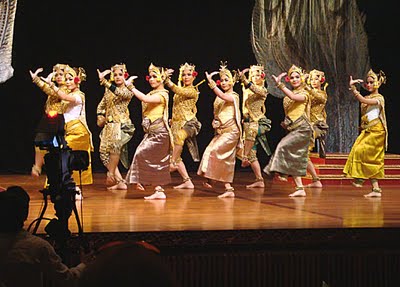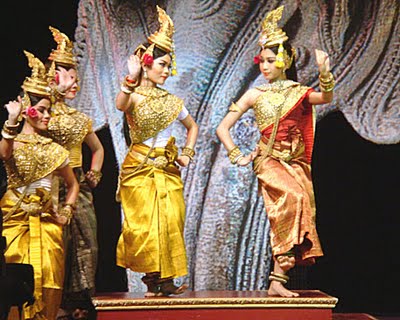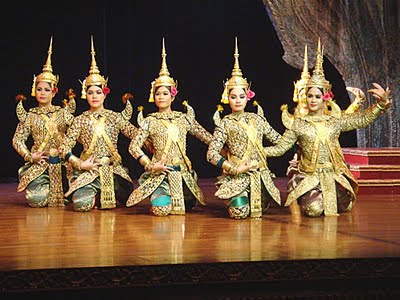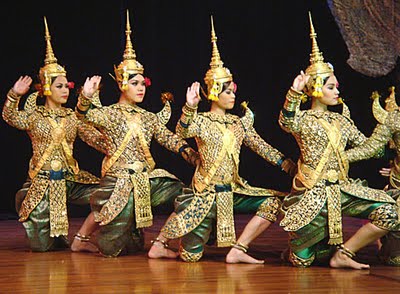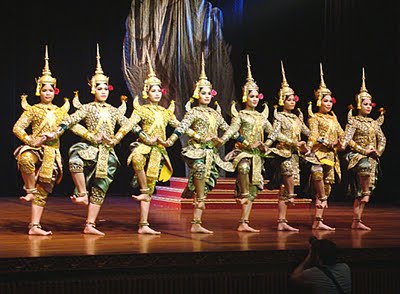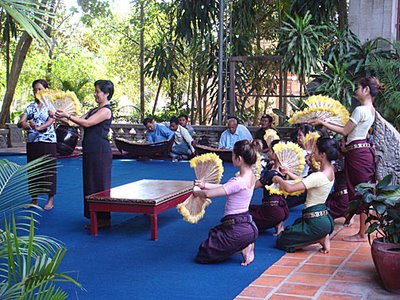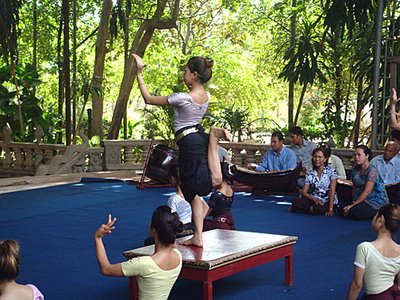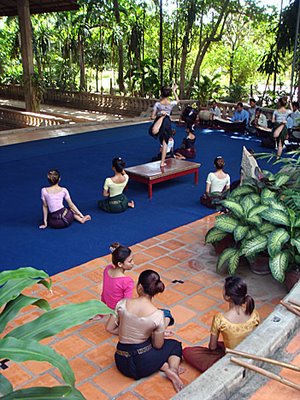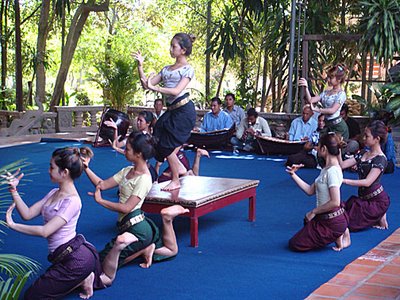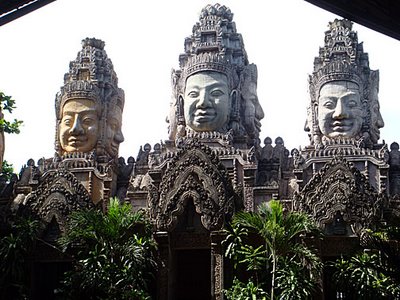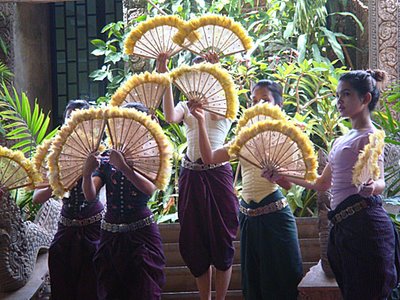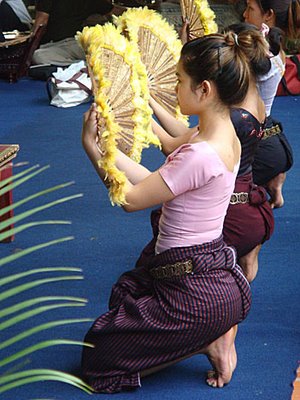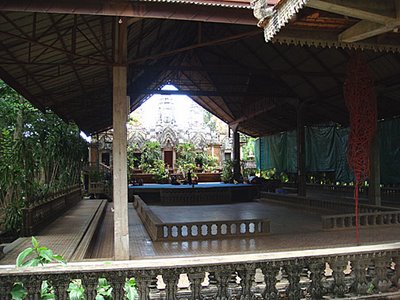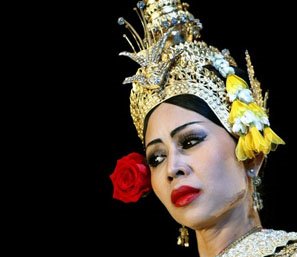 Sam Sathya in the classical dance Pamina Devi (pic Getty Images)
Sam Sathya in the classical dance Pamina Devi (pic Getty Images)
Last night's screening of
Pamina Devi at Meta House was a great insight into classical Khmer dance. Not only for the 90 minute film of the performance of the Cambodian version of Mozart's Magic Flute but for the in-depth descriptions offered by the dance drama's choreographer Sophiline Cham Shapiro, before and after the showing. To understand the nuances and gestures of classical dance, you need someone like Sophiline to explain it. Even Khmers who know the historical stories behind the dances as they learnt them at school in most cases, don't know what all the hand movements mean. But Sophiline, who trained as a dancer for nearly a decade before moving to the US, and who has now returned to bring new and old dances to life with her touring company Khmer Arts Ensemble, is one of the most knowledgeable masters of classical dance and is able to express herself well to a western audience. It was enlightening to hear her discuss Pamina Devi in detail, explaining that her original idea of making the cast mostly male, almost the complete reverse of normal dance dramas, was opposed by the Ministry of Culture and she had to revert instead to an all female cast. It was great to see
Sam Sathya, looking as regal as ever, in her role as Sayon Reachny - she is rightly regarded as the leading dancer of her generation and she oozes class in every move she makes. The idea of making classical dance much more accessible and opening a window into this cultural art form that was once the sole realm of the Khmer god-kings is a welcome development by Sophiline and her team at Khmer Arts. More of the same please. There has been a dearth of classical dance performances in the first six months of this year and I find it disappointing that the dancers at the university of fine arts are not given regular opportunities to display their talents in the public arena. They have a large body of classical work to select from and yet no regular performances are staged at venues like the Chaktomuk Theatre. Rant over.
In my google wanderings, I found a 1997 interview with
Sam Sathya, which I have posted extracts from below:
Sam Sathya is 28 years old, she's a ballet dancer at the Royal Academy of Cambodia and she interprets dances of Rama and Princess Sita in the epic of Rama for a monthly salary of 20 US dollars. She was born in Phnom Penh, is 1.58 metres in height and 48 kg in weight. She has no special diet. She has been married for two years. "When I was little, I saw Madam Voan Savay interpret the role of Apsara at the National Theater. I knew I would be a dancer." She entered the Royal Academy of Fine Arts in 1981, obtained a masters degree in dance in 1989 and joined the ballet. "The situation is not good for all Cambodians. Living conditions are harsh. Efforts to raise the level by learning technologies that are not ours as much as possible. We must also maintain our directory and refine it. We cannot be distracted by the political context, the tensions of the outside, otherwise we stop. Technically, I control my role. The question is how to interpret, making it grow from the inherited form. Until the end of my career, I will work on the combination of technology, which gives the exterior form, and interpretation, which comes from within, ie. the combination of body and heart. To interpret Sita, it should be technical, but I also need to dance with fidelity." As a little girl it was her task to light the lamps that would illuminate the performance area of the troupes that danced and sang of the glory of the Khmer Rouge revolution. Since those early days she has toured throughout Africa, Asia, Europe, and North America, and today teaches at the National School of Fine Arts.
Labels: Khmer Arts, Pamina Devi, Sam Sathya, Sophiline Cheam Shapiro
